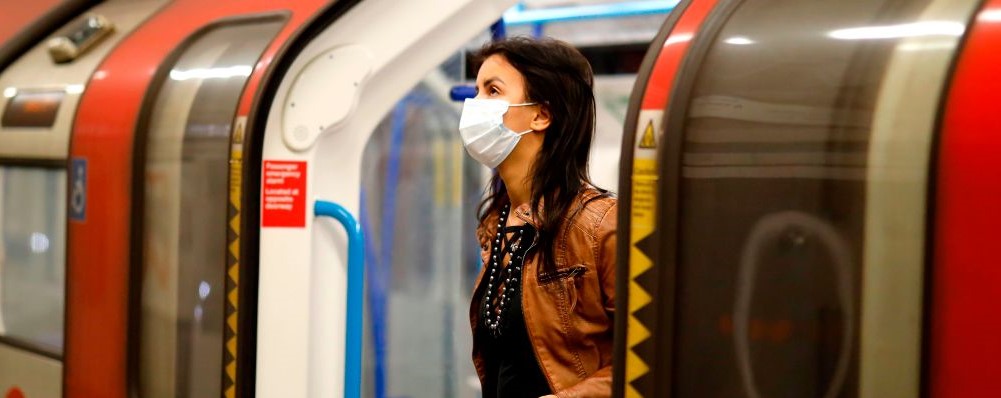Masking sickness at work?
Fear for their jobs has prompted British workers to take the fewest number of sick days since records began – only 137m working days last year were lost to sickness, equivalent to just over four days per worker.
Compared to two decades ago, in 1993, workers took on average 7.2 days off each year.
The ONS highlighted that there was a sharp drop in the number of sick days following the financial crisis in 2007, suggesting that many workers may be going to work ill because they feel insecure about their jobs.
The figures from the Office for National Statistics (ONS) show that minor illnesses such as colds were the most common reason cited for sickness absence, followed by musculoskeletal problems such as back and neck pain. Mental health problems such as depression, anxiety, schizophrenia came in third, accounting for 11 per cent of sick days taken last year.
Employees had a higher rate of sick days than self-employed, with 2.1 per cent for employees and 1.4 per cent for self-employed – a not surprising trend given that self-employed people are not entitled to sick pay.
TUC general secretary Frances O’Grady said that today’s ONS figures show that it was a “myth that UK workers are always throwing sickies.”
“We are really a nation of mucus troopers, with people more likely to go to work when ill than stay at home when well,” she said.
“Sickness absence rates have fallen steadily over the past decade, and let’s not forget that working people put in billions of pounds’ worth of unpaid overtime each year.”
As job insecurity becomes entrenched in an economy where zero-hours contracts and bogus self-employment are the new normal, â€presenteeism’ – coming into work while ill – will only skyrocket.
Just last week, it was revealed that far from being paid when they’re off sick, Parcelforce couriers, who are classified as self-employed, are fined £250 per day for missing three days if they do not find a replacement to cover their shifts.
 A report from Citizens Advice found that as many as one in 10 workers are wrongly classified as self-employed by employers seeking to shirk paying entitlements such as sick pay, holiday pay and maternity leave, with the exchequer missing out on £300m each year in tax receipts.
And while high levels of presenteeism might be interpreted as workers being engaged and committed to their jobs, research has shown that actually the opposite is true – people coming into work while ill is worse for overall productivity than if workers just took the days off to recover.
It’s been estimated that presenteeism actually costs the economy £30bn each year from additional time lost when, for example, sick staff spread contagious illnesses to others or become even more ill after not having initial time off to recuperate.
Insult to injury
To add insult to injury, figures from the Health and Safety Executive (HSE) show that last year 30m days were lost to a work-related illness – for example, chronic back pain from sitting at a desk all day or stress from working long hours – which suggests that more than 20 per cent of all sick days are caused by being at work itself.
Unite national health and safety adviser Bud Hudspith argued that the problem with most employers is that they see sickness absence as something to be punitively managed.
“This approach often only ends up making the problem worse,” he said. “Management also normally looks at sickness absence through the lens of external illness being brought into the workplace, when as the figures suggest, a huge proportion is caused by something that’s happening in the workplace itself.”
Hudspith said that HSE figures are at best extremely conservative estimates, which means that work-related illnesses could be a much bigger proportion of days lost to sickness than we might think.
“If employers become better at identifying work-related illnesses, then they can do something about it,” he went on to say. “Bosses can’t control what happens to people outside of the workplace but they can control, for example, workloads or a workplace culture that contributes to stress. That’s why we at Unite push for every workplace to have health and safety assessments.”
Unite assistant general secretary Steve Turner agreed, blaming insecure work contracts for rising levels of presenteeism.
“The rise of bogus self-employment, zero-hours contracts and other forms of insecure work arrangements mean that more and more people simply cannot afford to take time off sick from work, or they’re too afraid to out of fear of losing their jobs,” he said.
“Not only is this system deeply unfair and inhumane for workers, many who suffer from ill health precisely because of the stress and strain of their jobs, but also this punitive system does little for productivity,” Turner added.
“As the figures show, presenteeism ends up causing more work days to be lost and costing the economy more each year than workers taking days off to recuperate from illness – no wonder we have one of the lowest productivity rates in Europe.
“If we really want to make Britain work for working people, as prime minister Theresa May so often says she does, then we must ban insecure work arrangements such as zero hours contracts – workers on such contracts are only motivated by fear. The reality is that happier, healthier and unionised workplaces, ones where workers are not afraid to take time off from work if they’re battling illness, are much more successful ones.”
 Like
Like Follow
Follow


